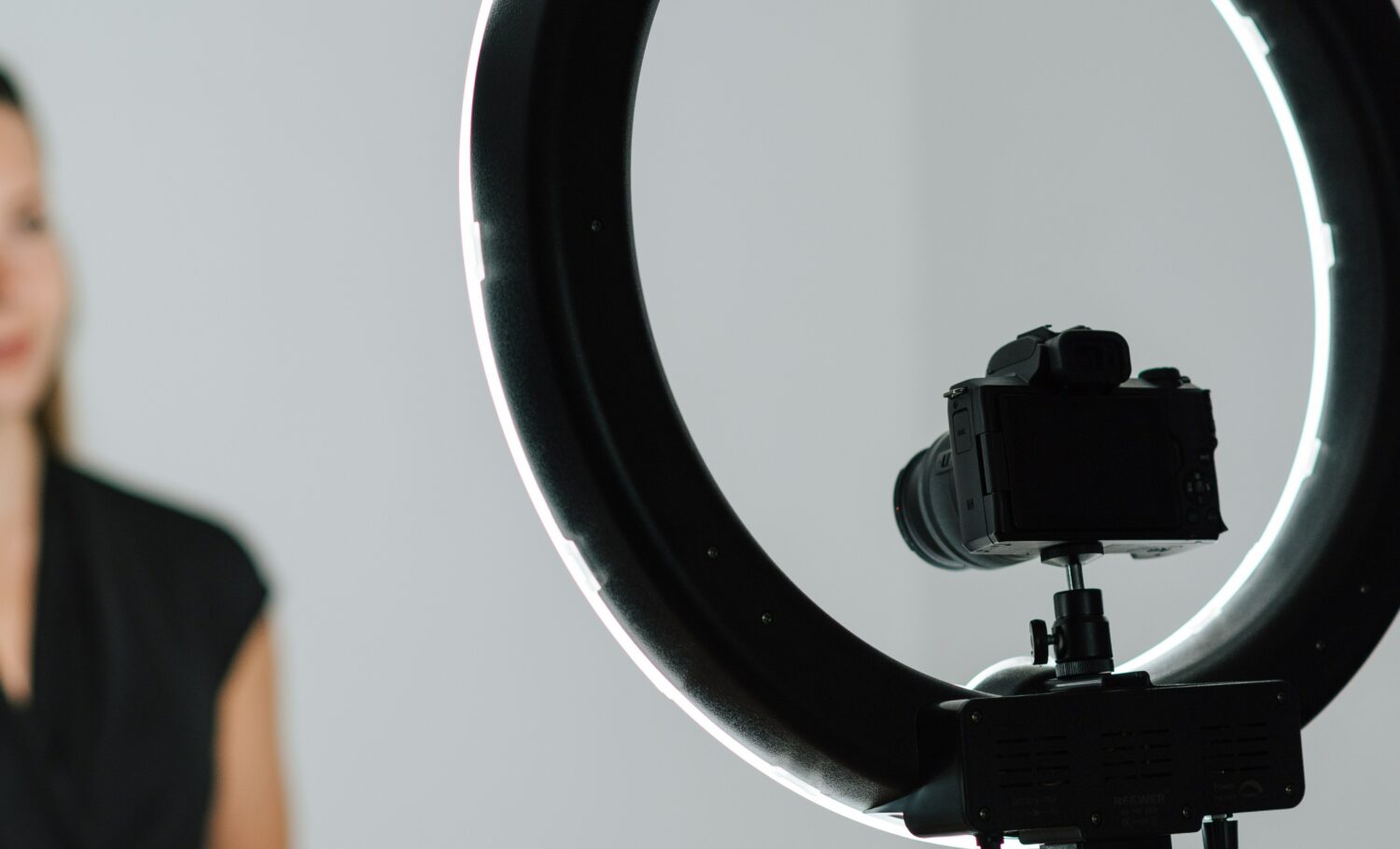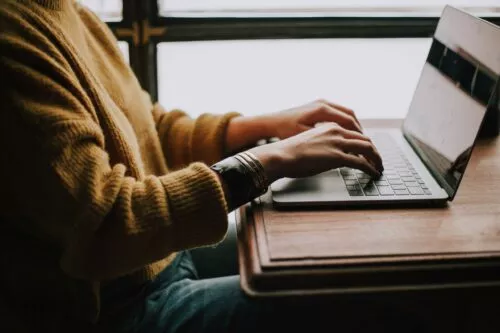The grip tightens. On Thursday, March 30th, the government sought to establish a framework for the practices of influencers. The National Assembly unanimously passed a law in its first reading aimed at "combating scams and abuses by influencers on social networks."
These men and women are followed daily, exemplified by Paola Locatelli, a true social media star. Before almost every outing, the 19-year-old influencer unpacks freshly received packages from clothing brands and prepares herself, under the gaze of her 1.5 million TikTok followers.
Although she has fewer followers than the number one, Squeezie, with his 8.2 million Instagram followers, both enjoy a popularity often surpassing that of traditional media. Their content, ranging from entertainment to cooking or beauty ideas, disseminated on platforms like YouTube, TikTok, or Instagram, captures the attention of a wide audience. Brands like Sephora, Levi’s, or Burger King have taken note of their influence, increasingly favoring this lever to gain attention.
Influence marketing figures show that its popularity aligns with its effectiveness. This market was estimated at $16.4 billion in 2022, 20 times more than in 2015, according to a Hubspot study in 2022. A real asset for a company, the opinions and recommendations of influencers are often echoed by traditional media, thereby increasing the reach of a PR campaign. They have the ability to generate strong engagement and reach a specific audience. Despite its rapid growth, for over a year, the world of influence has been shaken by several scandals and controversies due to its share of misleading commercial practices.
These men and women are followed daily, exemplified by Paola Locatelli, a true social media star. Before almost every outing, the 19-year-old influencer unpacks freshly received packages from clothing brands and prepares herself, under the gaze of her 1.5 million TikTok followers.
Although she has fewer followers than the number one, Squeezie, with his 8.2 million Instagram followers, both enjoy a popularity often surpassing that of traditional media. Their content, ranging from entertainment to cooking or beauty ideas, disseminated on platforms like YouTube, TikTok, or Instagram, captures the attention of a wide audience. Brands like Sephora, Levi’s, or Burger King have taken note of their influence, increasingly favoring this lever to gain attention.
Influence marketing figures show that its popularity aligns with its effectiveness. This market was estimated at $16.4 billion in 2022, 20 times more than in 2015, according to a Hubspot study in 2022. A real asset for a company, the opinions and recommendations of influencers are often echoed by traditional media, thereby increasing the reach of a PR campaign. They have the ability to generate strong engagement and reach a specific audience. Despite its rapid growth, for over a year, the world of influence has been shaken by several scandals and controversies due to its share of misleading commercial practices.
"The party is over."
Scams, lack of transparency in partnerships, praise for overconsumption, retouched photos, promotion of illicit products. The controversy of "influvolers" has shaken the flourishing foundations of influence marketing and made headlines. The Directorate General for Competition, Consumer Affairs, and Fraud Control (DGCCRF) targeted nearly 60% of influencers for violations related to influence marketing.
Faced with this observation, authorities have taken these shortcomings in good practices seriously. On May 7th, on the set of BFM TV, Bruno Le Maire, the Minister of the Economy, sent an unequivocal message to dishonest influencers: "The party is over for all those who think they can cheat with impunity on the Internet." During his intervention, the minister responded to accusations from Magali Berdah, nicknamed the "pope" of influencers, who accuses him of contributing to the cyberbullying she is experiencing due to her statements. According to her, Bruno Le Maire does not distinguish honest influencers from the abuses caused by some, in what he calls the "Wild West" of the internet.
Faced with this observation, authorities have taken these shortcomings in good practices seriously. On May 7th, on the set of BFM TV, Bruno Le Maire, the Minister of the Economy, sent an unequivocal message to dishonest influencers: "The party is over for all those who think they can cheat with impunity on the Internet." During his intervention, the minister responded to accusations from Magali Berdah, nicknamed the "pope" of influencers, who accuses him of contributing to the cyberbullying she is experiencing due to her statements. According to her, Bruno Le Maire does not distinguish honest influencers from the abuses caused by some, in what he calls the "Wild West" of the internet.
The image of brands at the heart of the equation.
In a striking column published in CBNews, Adèle Maier, a lawyer at BOUCHARA & AVOCATS, alerts about the "abuses of influencers." According to her, brands must consider these personalities as an exceptional opportunity, but also as communication vectors carrying risks.
Moreover, some brands and companies do not hesitate to distance themselves from their influencers to avoid tarnishing their reputation. In December 2022, Webedia, which manages the monetization of Norman's YouTube channel, announced on its Twitter account the "suspension of its collaboration" with the YouTuber, following his indictment.
In the turmoil, the new Union of Influence Trades and Content Creators (Umicc) recently published a column in JDD. Its goal: to restore the image of a controversial sector and potentially capable of jeopardizing their profession. For Umicc, it is imperative not to "break the virtuous model" of influence marketing because of a "minority" of influencers. Although some signatories, among the most famous on the web, have dissociated themselves from the text, all seek to distinguish themselves from bad actors and point fingers at the practices of reality TV stars, who are largely in the minority in the field.
Moreover, some brands and companies do not hesitate to distance themselves from their influencers to avoid tarnishing their reputation. In December 2022, Webedia, which manages the monetization of Norman's YouTube channel, announced on its Twitter account the "suspension of its collaboration" with the YouTuber, following his indictment.
In the turmoil, the new Union of Influence Trades and Content Creators (Umicc) recently published a column in JDD. Its goal: to restore the image of a controversial sector and potentially capable of jeopardizing their profession. For Umicc, it is imperative not to "break the virtuous model" of influence marketing because of a "minority" of influencers. Although some signatories, among the most famous on the web, have dissociated themselves from the text, all seek to distinguish themselves from bad actors and point fingers at the practices of reality TV stars, who are largely in the minority in the field.
Reinventing influence: the indispensable step ?
The new laws seem to arrive just in time, as distrust is gaining ground among consumers. A study conducted by Reech in 2023 on the world of influence reveals that those surveyed do not blindly trust creators: only 24% of people who follow influencers consider them reliable sources when it comes to buying a product.
The expectations of fans of creators and other social media users are similar: two-thirds of them want influence to evolve towards more responsibility and ethics. Among the measures considered essential for more responsible influence, the banning of scams ranks at the top of the list. In fact, 68% of those surveyed consider this fight a priority.
Regulating the activity of influencers would therefore respond to a seemingly majority demand. But will this be enough to regain the public's trust and thus more broadly ensure the survival of influence marketing ?
Randa El Fekih
The expectations of fans of creators and other social media users are similar: two-thirds of them want influence to evolve towards more responsibility and ethics. Among the measures considered essential for more responsible influence, the banning of scams ranks at the top of the list. In fact, 68% of those surveyed consider this fight a priority.
Regulating the activity of influencers would therefore respond to a seemingly majority demand. But will this be enough to regain the public's trust and thus more broadly ensure the survival of influence marketing ?
Randa El Fekih



